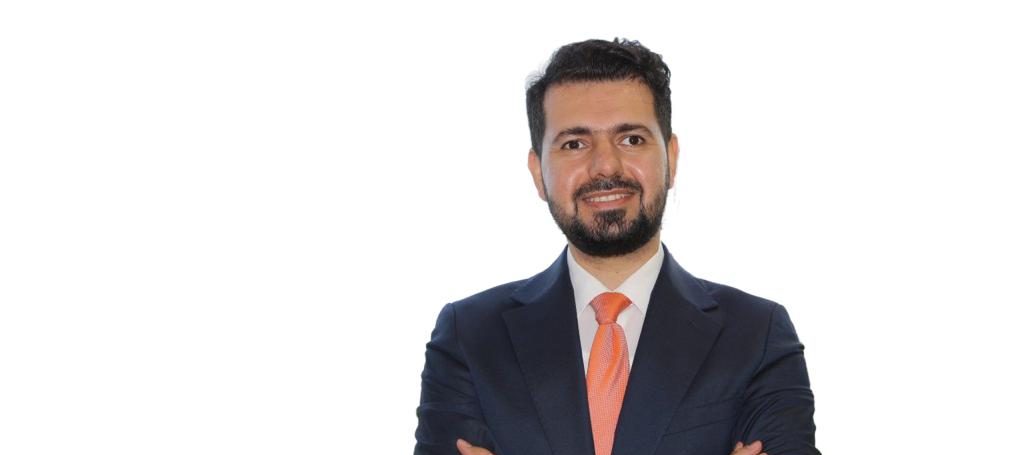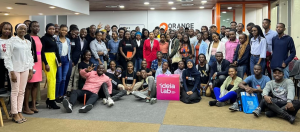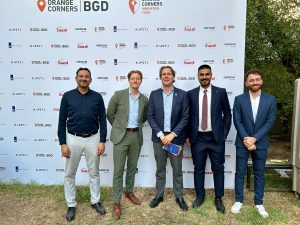The success of a local Orange Corners programme depends not just on our implementing partners. A close collaboration with the local Netherlands embassy or consulate is just as important. Linking local knowledge with wider Orange Corners goals, embassies and consulates advise local hubs, establish public-private partnerships and cheer on our entrepreneurs at every turn. During a recent visit to the Netherlands, we spoke to Nali from the Netherlands Consulate-General in Erbil to learn more about the context and ecosystem Orange Corners Erbil operates in.
Nali, lovely to have you here with us today! To start, could you tell us who you are and what you do for a living?
I’m Nali Bahaulddin, a policy officer at the Netherlands Consulate-General in Erbil. I’m primarily involved in trade and economic activities at the Consulate-General. Alongside my colleagues, I work to facilitate a trade environment between the Netherlands and the Kurdistan Region of Iraq, supporting both Dutch and Kurdish entrepreneurs. Additionally, I contribute to economic development and private sector development projects, including Orange Corners, Youth Employment projects and several others.

When we talk about youth, do your projects have a specific focus?
Empowering youth is a priority not only due to their high percentage in the Kurdistan Region of Iraq’s population but also because of their potential contribution to private sector development and economic growth. Our focus is on themes related to climate resilience in agriculture and renewable energy. Both sectors are essential for addressing climate change mitigation in Iraq, which is ranked as the 5th most affected country globally. Our programmes also aim to enhance the entrepreneurial mindset among youth, a less popular choice due to a prevalent interest in public jobs. We believe that young entrepreneurs can innovate, start new businesses and become sources of employment for others.
In addition to Orange Corners, what other programmes related to youth does the consulate support?
Orange Corners is one of our most captivating programmes. Each year, approximately 50 young entrepreneurs are enrolled. Beyond Orange Corners, we’ve recently initiated the Youth Employment Project, funded by RVO. This project aims to increase employment for Kurdish youth by fostering collaborations between the private sector and knowledge institutes. Fresh graduates will undergo training in partnership with their universities and private companies, focusing on entrepreneurial and soft skills needed for the workplace.
And apart from locally implemented programmes, the Orange Knowledge and MENA Scholarship Programmes offer scholarships for short courses in the Netherlands across various sectors. Additionally, the Netherlands funds agricultural programmes that aren’t targeting youth specifically, but contribute to employment in general. The Iraqi Horticulture Development Program and a potato value chain project have already created over 500 direct sustainable jobs and thousands of indirect and seasonal jobs, especially in rural areas. Alongside these initiatives, the Consulate-General collaborates at the policy and advocacy level to support youth and young entrepreneurs, with partners from the government, NGOs and the private sector.
The entrepreneurial ecosystem in the Kurdistan Region is improving fast
Nali Bahaulddin, policy officer at the Netherlands Consulate-General in Erbil
What does the entrepreneurial ecosystem look like in the Kurdistan Region?
The entrepreneurial ecosystem in the Kurdistan Region is improving fast. Government and NGO efforts to enable a business environment are progressing, although it takes time to reach favorable levels. The majority of policies and regulations were drafted in the mid-20th century during a period of centralised government, resulting in a current environment that poses bureaucratic challenges for private actors looking to grow their companies. The legal framework to regulate startups, tech-based businesses or intellectual properties is not well-established. Culturally, there’s a preference for public services over private. There’s a positive shift towards economic diversification and an appreciation for small-scale enterprises in the Kurdistan Region though.
During 2021-2022, in collaboration with local partners, the Consulate-General organised focus group discussions on the entrepreneurial ecosystem. It was an impactful project, funded by RVO, which resulted in a Policy Recommendation Paper which was handed over to the government. The paper addressed six main challenges entrepreneurs face and provided 11 recommendations. Some of the recommendations have already been implemented by the government, including a more efficient, digitalised and less costly business registration system. While some challenges require further attention, we remain hopeful, witnessing real developments. Entrepreneurs can now register their companies in the Kurdistan Region within a week, spending a couple of hundred dollars, compared to last year, where it would’ve taken months and cost thousands of dollars.
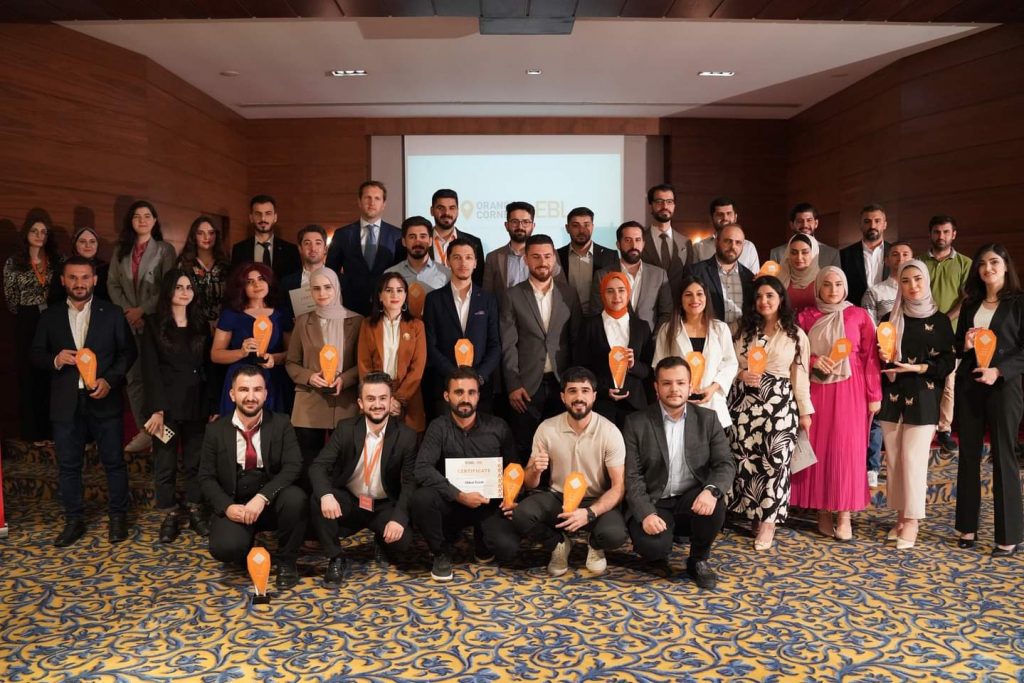
How does the startup ecosystem in the Kurdish Region compare to the rest of Iraq? Do you mostly see similarities or differences?
There are no fundamental differences in the ecosystem between Iraq and the Kurdistan Region. Policies and the financial system are similar in both regions. The economic conditions in Iraq are better compared to the Kurdistan Region, which faces a financial crisis. While this has made the overall conditions more challenging, it has also driven efforts towards income source diversification. Consequently, there’s a more positive atmosphere for the private sector in the Kurdistan Region. As you know, crises lead to creative solutions and thus prosperity.
Viewing crises as generating opportunities, especially with economic diversification and the promotion of agribusiness, the region holds promise. The Netherlands Consulate-General has successfully collaborated with the public and private sector in the Kurdistan Region to enhance potato production. Despite financial challenges, optimism prevails given ongoing policy and government-level efforts. The combination of a favorable business environment in the region and Iraq’s substantial market creates an excellent foundation for the entire ecosystem.
How would you compare the Orange Corners programmes in Erbil and Baghdad?
Orange Corners Erbil and Baghdad are similar in terms of the programme size and implementation, but with different implementing partners. The challenges may differ slightly. Generally, the government and public sector are more cooperative in the Kurdistan Region, whereas in Baghdad there’s more private sector engagement in the entrepreneurial ecosystem. This is due to the presence of larger firms in Baghdad, and some are seeking to acquire startups. Having Orange Corners in both parts of the country serves as a cultural bridge between the youth of both regions. Both Orange Corners Erbil and Orange Corners Baghdad stand out as icons in the private sector and business-enabling initiatives in Iraq.
Crises lead to creative ideas and thus prosperity
Nali Bahaulddin
How does private sector engagement look in the Kurdish Region?
In Orange Corners Erbil, Asiacell is the local founding partner. In addition to Asiacell, there are few other companies that contribute to Orange Corners and similar programmes, mostly with in-kind support. This is a very good sign, but in fact engagement is still quite limited. More effort is needed. The private sector should recognise the value of innovation, entrepreneurship and startups beyond mere CSR funds. Having businesses with tech and innovative ideas highly contributes to the development of the market environment. Moreover, a business idea or a startup can be profitable for investors. The private sector in the Kurdistan Region are engaging based on their social responsibility feelings.
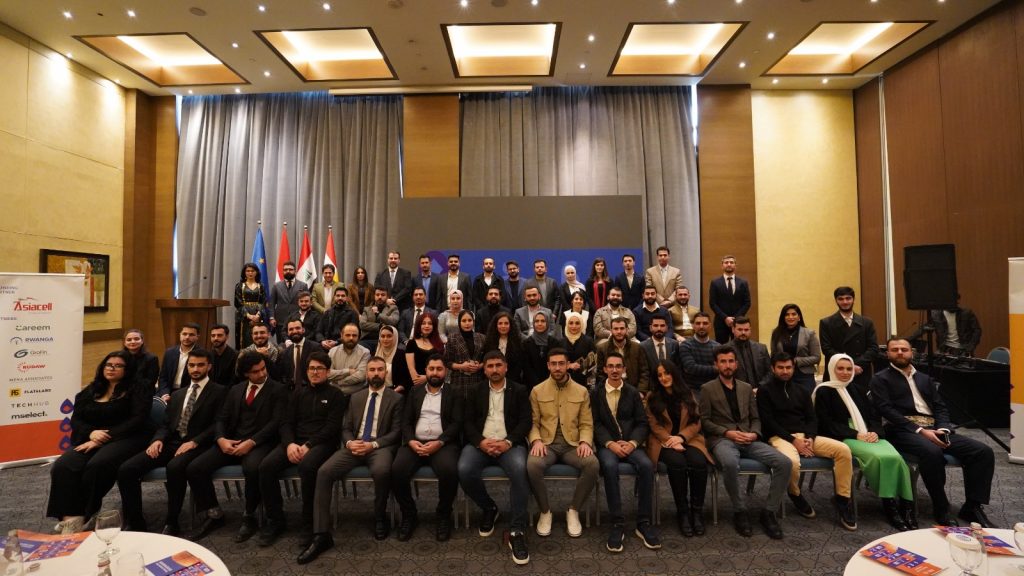
Orange Corners has been active in Iraq since 2019. How do you evaluate what we’ve done in the past few years?
Six cohorts have graduated from Orange Corners Erbil so far and it’s set to continue for the next five years. Over 100 youth received six months of training, mentorship and ideation for their business ideas. When Orange Corners started in 2019, there were few incubation hubs, and youth didn’t have enough access to expertise for incubating their ideas and reaching their MVP. Youth entrepreneurship and the startup ecosystem weren’t prevalent topics. Orange Corners filled this gap, providing an incubation and a co-working space where young entrepreneurs could access professional knowledge. Some of the alumni of the Orange Corners programme are now enjoying their business, employing a number of staffs.
The Consulate-General also collaborated with NGOs and relevant government officials to work for a better entrepreneurial ecosystem. The government is now receptive to youth and entrepreneurs. NGOs are also initiating new programmes to support entrepreneurs. A considerable change has occurred in these four years, and Orange Corners prominently contributed to such changes.
What about OCIF?
OCIF has significantly enhanced Orange Corners’ impact. Previously, entrepreneurs received excellent incubation training, but often faced challenges to scale up due to a lack of seed funding. OCIF has made Orange Corners more appealing to entrepreneurs, and participants are more committed to the programme, knowing the top three will win OCIF. Entrepreneurs who secured OCIF have already expanded, opening new branches and offices. With more OCIF winners, there’s confidence in seeing more successful Orange Corners alumni.
Through the Orange Corners x Forward·Inc Alumni Accelerator we already met Luqman Mutaleb, founder of Maydani Zaniari, a platform connecting farmers and agricultural companies in Iraq. Are there any other success stories of successful businesses coming out of the Orange Corners Erbil programme?
Yes, there are many success stories. To name a few: Saydo, a B2B FMCG company focusing on fresh food; Zaleli and Jamana, providing creative fashion designs; Purely and Lala Candles, providing candles with creative designs; Wedonet for creative productions, and Lany Natural, offering natural products with creative designs and materials. These are currently operating in the market. What sets them apart is the creative element in their products, with many relying on online platforms and applications.
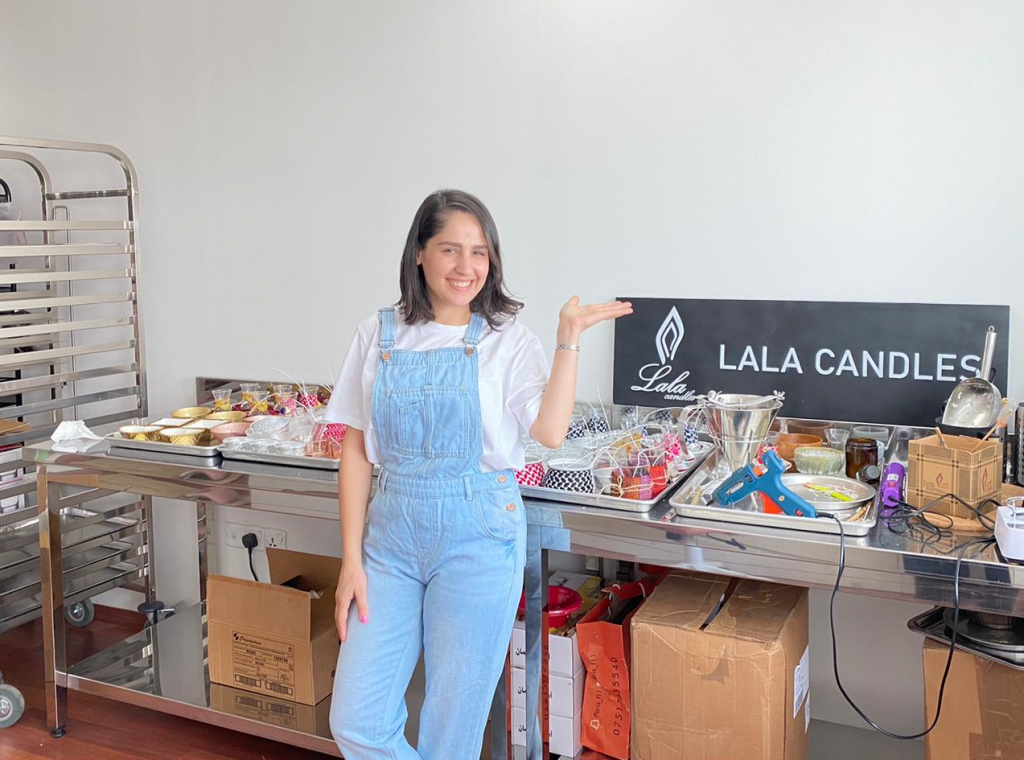
With Lala Candles you mention one of our most successful female entrepreneurs in the Kurdistan Region. Do women entrepreneurs in the Kurdistan Region face particular gender-related challenges, and how do you evaluate what Orange Corners has done for women entrepreneurs in the Kurdish Region in particular?
Female entrepreneurship is a theme of Orange Corners, and the programme has been successful in maintaining its focus on it. Female entrepreneurs face challenges that male entrepreneurs might not encounter. These obstacles may not necessarily arise from policy or gender issues. Sometimes being a female entrepreneur might lead to a lack of aggressiveness in pursuing one’s dream business. The immediate surroundings of female entrepreneurs might not be supportive enough to trust in them.
Beyond including more women in the programmes, Orange Corners hosts bi-monthly public discussions, “She Talks”, addressing issues and challenges faced by women in business. She Talks addresses issues women entrepreneurs face, but it’s aimed at raising society’s awareness of such matters. Moreover, Orange Corners, in partnership with its media partner, provided a platform at the most watched media agency in the region to host the women participants of Orange Corners. The focus of the show was to showcase empowered women entrepreneurs as examples.
Entrepreneurs are creative like artists
Nali Bahaulddin
If you were a programme advisor at Orange Corners, what would be your recommendations to improve the programme?
Orange Corners is already a well-established programme, but I’d focus on two areas. Firstly, reaching a broader audience. Especially in the context of Iraq and the Kurdistan Region, it’s crucial to go beyond an incubator for the applicants of the cohorts. This can be achieved through targeting youth during their academic years at universities. By enrolling them in mini training incubators and incubation programmes during their university years, youth can build an entrepreneurial mindset, allowing them to graduate with a foundation for entrepreneurship. Such a mindset helps them, even if they work as an employee.
And secondly, raising societal awareness of entrepreneurship is essential. Entrepreneurs are creative like artists, addressing gaps in the community. In today’s world, they drive the country’s economy and provide job opportunities. Supporting entrepreneurs from an early age isn’t just about finding jobs; it’s about creating potential job opportunities for the future. The more entrepreneurs we have, the more competitive the market becomes, offering diverse services and products. Moreover, successful entrepreneurs can go beyond borders and benefit the whole world. Orange Corners can play a role in building such awareness with the objective of a more supportive ecosystem for youth and entrepreneurs.
Follow Orange Corners Erbil online:
Facebook
X
Instagram
LinkedIn
Follow the Netherlands Consulate-General in Erbil online:
Website
Facebook
X

